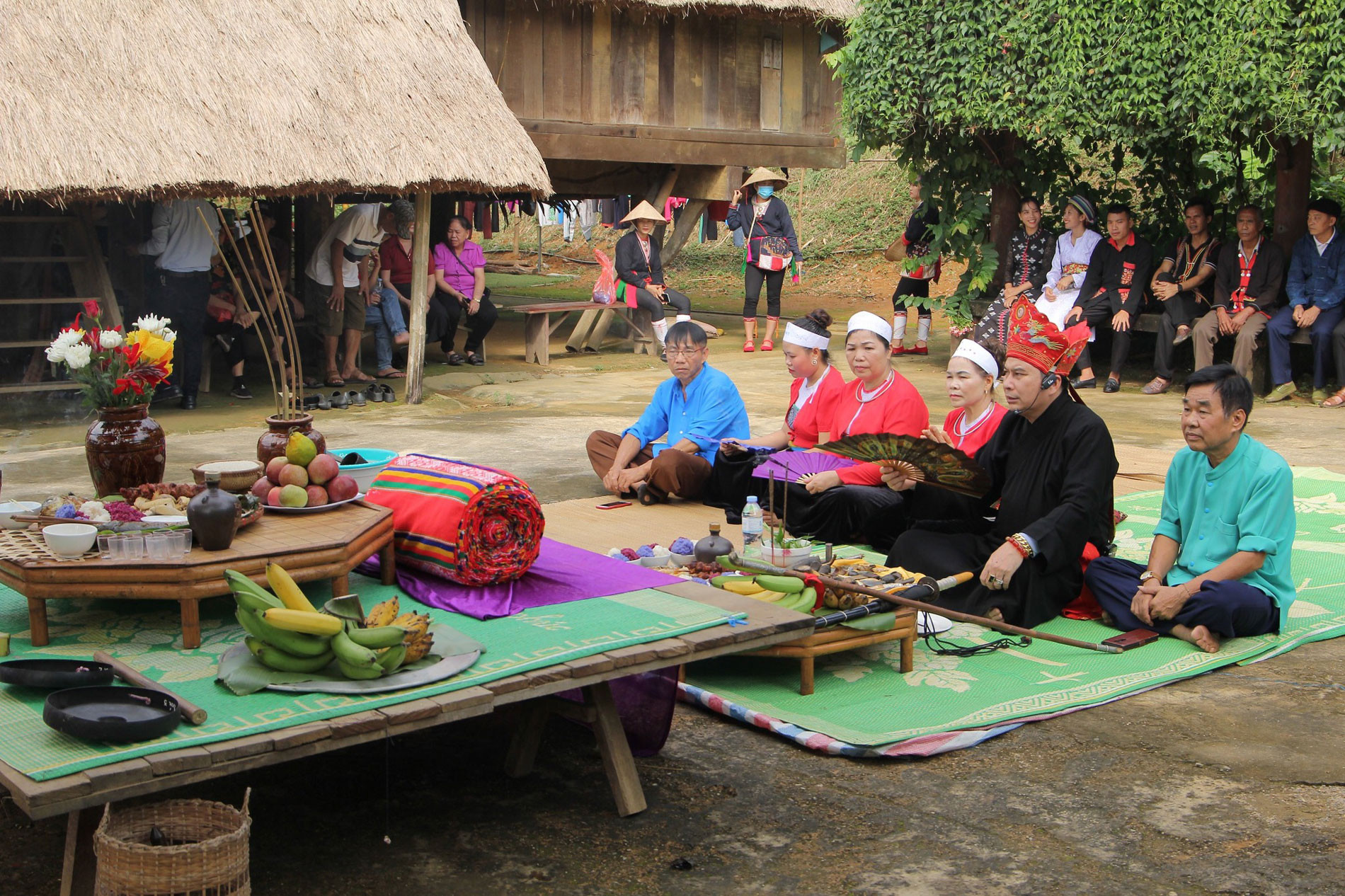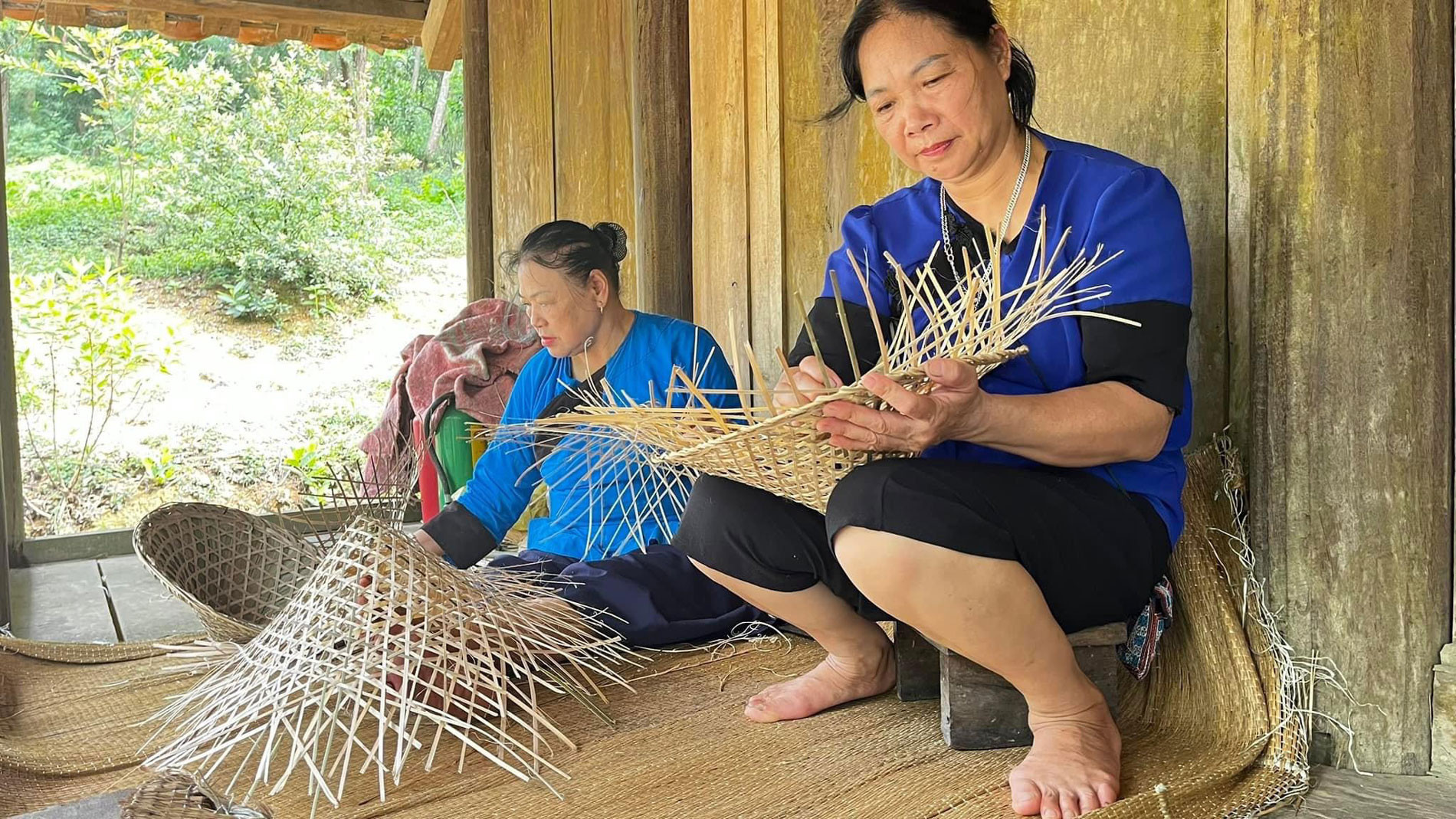
The seminar entitled “Living Cultural Heritage and Sustainable Development: From a People-centered Approach” was recently organized by the Department of Cultural Heritage under the Ministry of Culture, Sports and Tourism and the British Council in Vietnam to find measures to preserve and develop sustainable intangible culture and the role of the community - the holders and practitioners of heritage.
Preserving cultural heritage is a far-fetched thing?
"Intangible cultural heritage” or “living heritage” has a very important meaning in life. Living cultural heritage creates opportunities for communities and individuals to have a sense of identity and continuity; promoting social cohesion, respect for cultural diversity and human creativity; helping communities and individuals connect with each other at the local level and with the world", said Associate Professor, Dr. Le Thi Thu Hien, Director of the Department of Cultural Heritage at the seminar.
Mr. Dona McGowan - Director of the British Council in Vietnam said that Vietnam possesses a treasure of intangible cultural heritage such as traditional handicraft products, rituals, performing arts and knowledge. Indigenous people are deeply rooted in national culture. With more and more cultural values being recognized both domestically and internationally, cultural heritage is undergoing positive changes, benefiting practitioners and community members who contribute important role in sustainable development.
According to research by the British Council, people in many localities in Vietnam still think that preserving cultural heritage is "far away", and the main responsibility belong to state agencies or non-governmental organizations. Therefore, Ms. Donna McGowan affirmed that the conference is an opportunity to recognize, find appropriate strategies, and point out challenges and opportunities in using intangible heritage to achieve sustainable development goals, honor the contributions of the community, affirming their importance and central role in this transformation process.
Mr. Iain Frew - British Ambassador to Vietnam - highly appreciated the values of tangible and intangible cultural heritage in Vietnam. He said that Vietnam has more and more cultural heritages recognized domestically and internationally. Vietnam is also seeking to make the most of these values, ensuring that cultural heritage becomes the center of sustainable development.
Joining hands to protect 'living heritage'
Experts believed that protecting "living cultural heritage" - heritage holders - is important to build and develop a sustainable cultural life in Vietnam. When the community has improved understanding of the value of living heritage and come up with ideas for building and implementing activities to preserve and promote heritage values, it will bring a good future for cultural heritage. More importantly, the direct participation of the community also creates new opportunities, helping them benefit and improve their livelihoods.
According to Dr. Pham Cao Quy from the Cultural Heritage Department, intangible cultural heritage exists inseparably from people. It always resides in humans and can only be recognized through human performances, and artifacts. It is inherited, kept, practiced, created and passed on by generations. This means that heritage exists when the community has a sense of identity and continuity, connecting the past with the present and the future.
“Protecting and promoting the value of intangible cultural heritage is protecting people, creating conditions so that people (artisans, practitioners, communities) have the best and most suitable conditions to practice and preserve heritage. At the same time, policies associated with heritage that are developed and implemented must be based on people," Dr. Pham Cao Quy emphasized.

According to Dr. Nguyen Thi Thu Trang from the Cultural Heritage Department, as a humanistic resource with high intellectual quality, cultural heritage capable of serving the development requirements of typical, cultural industries, especially developing cultural tourism or heritage tourism. Based on the treasure of national cultural heritage, the tourism industry can create various types of cultural services that turn heritage into a special commodity. Heritage tourism also creates sustainable livelihoods for communities residing around cultural heritage and tourist destinations.
“In recent years, in Vietnam the scientific term 'heritage economics' has appeared as a new trend in the market economy, creating vibrant academic exchanges in both positive and negative directions. This is probably among the efforts to attach heritage to socio-economic development policies", Dr. Nguyen Thi Thu Trang said.
In many countries in the world, in addition to development projects, people begin to pay attention to investing in cultural heritage conservation from the perspective of urban heritage and heritage economics.
“Cultural heritage is only preserved when it is used and promoted to serve the goal of comprehensive human development. In Vietnam, cultural heritage must be preserved as a living organism in the life of the community and create sustainable livelihoods for the community. In addition, it must be preserved in continued development. The goals can only be achieved on the basis of a system of laws, mechanisms and policies created by the state, which has the consensus and enthusiastic support of the entire community,” PhD. Nguyen Thi Thu Trang said.
"We believe that we should create conditions for people to maintain their activities even after the project has ended, meaning increasing funding to support for a longer period of time,” said Ms. Nikki Locke - Head of the Cultural Heritage Project for Equitable Development of the British Council Global.
Specifically, representatives of the British Council Global proposed solutions to establish mini-museums in the community - the places to display traditional costumes, working tools, ceremonial objects, musical instruments, and homemade family products.
Ms. Nikki Locke said that in England, the state established the National Cultural Heritage Fund. “This fund is very large; it can be considered the largest. In the UK we have specific support activities in each region with its own characteristics related to culture, heritage, and intangible culture. It is important to have a comprehensive approach so that we can achieve the highest efficiency", Ms. Nikki Locke said.
According to her, this fund comes from the state and it invests in many different projects. This is a great opportunity for the community to access and obtain the necessary capital to preserve the cultural values and cultural heritage that the community and the subject holding the heritage desire.
To protect living heritage, the Director of the Department of Cultural Heritage affirmed that the community and the subject holding heritage must be considered the center, because protecting living heritage and protecting people holding heritage is the most important to building inclusive, resilient and sustainable societies for the future.